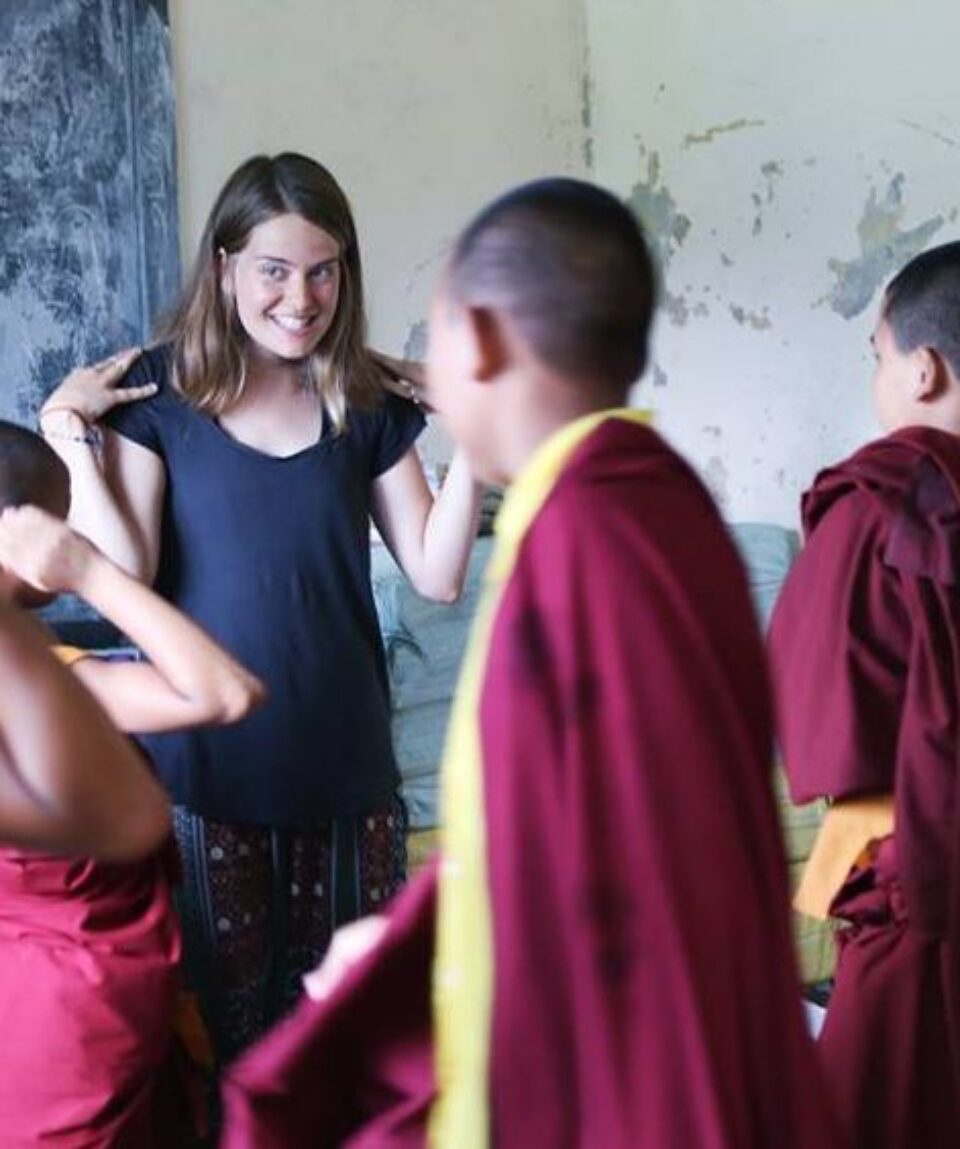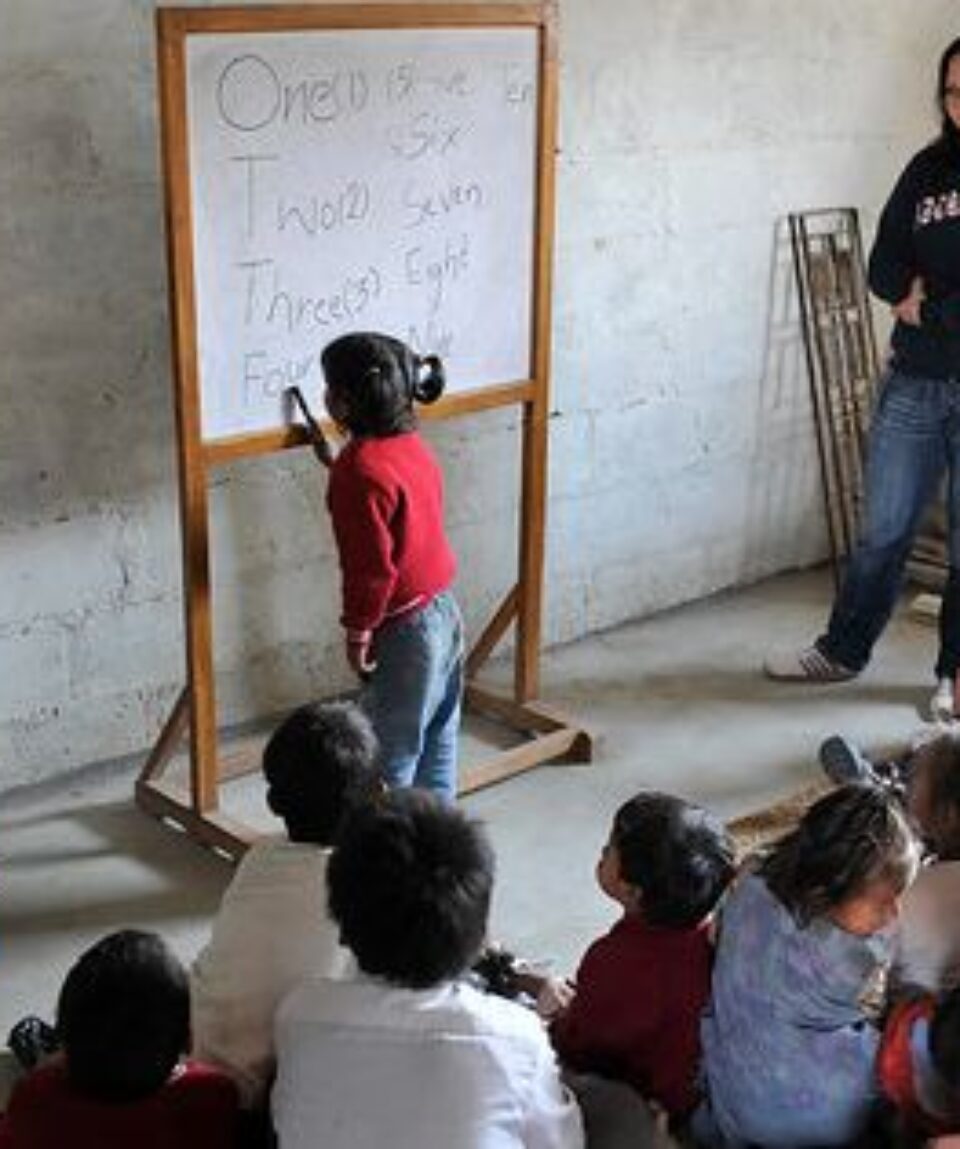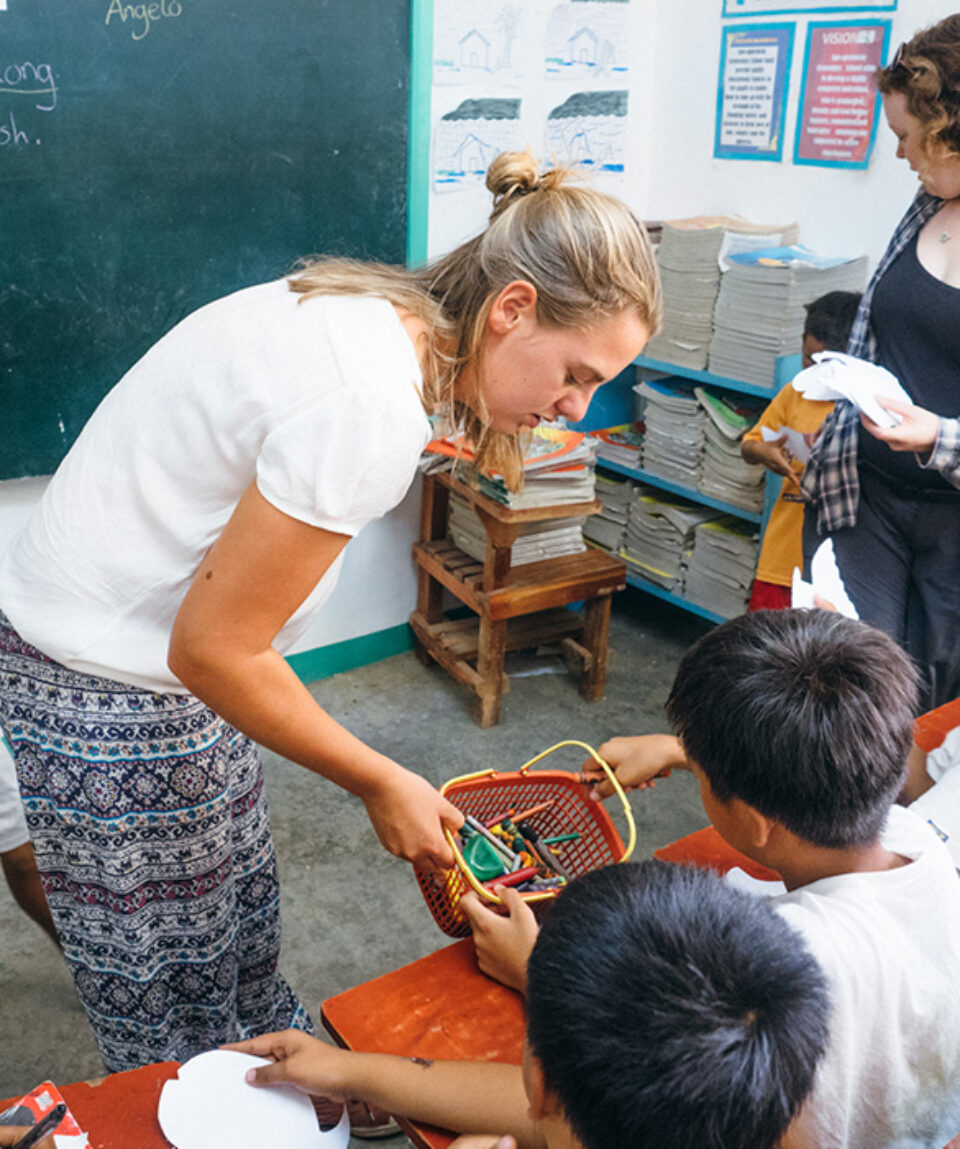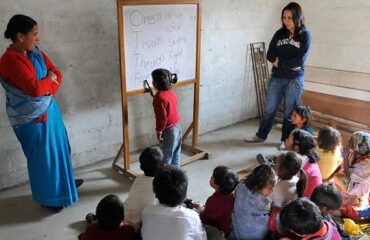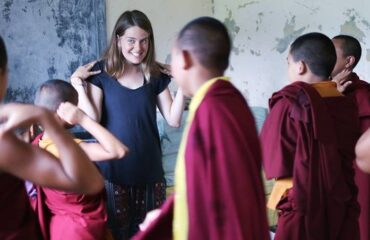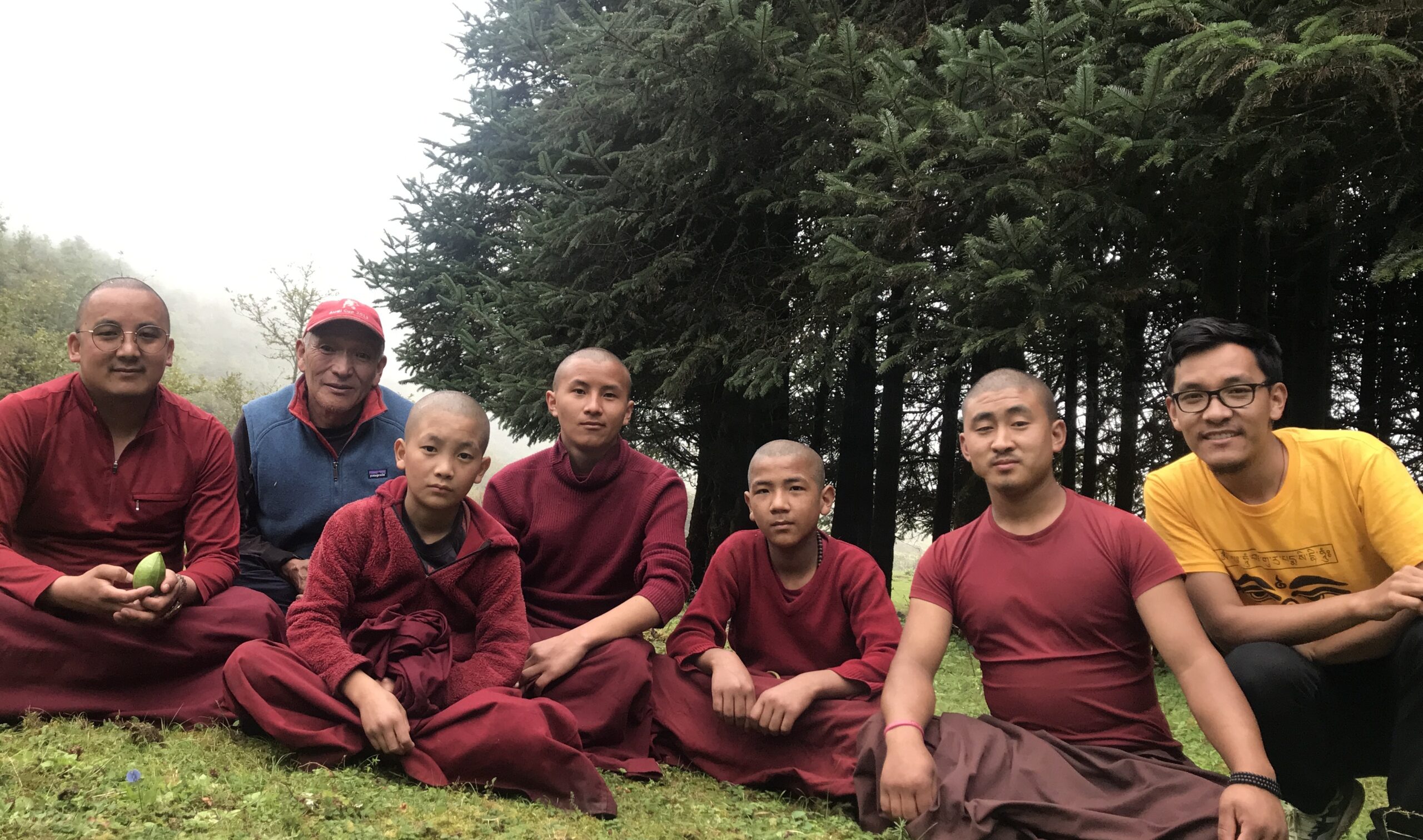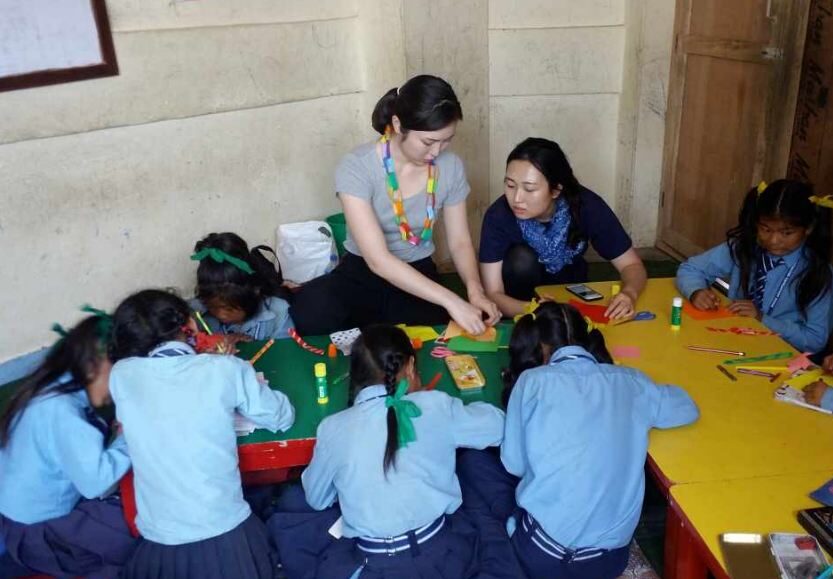Teaching Volunteering in Nepal
fromJoin a once in a lifetime opportunity to contribute to teaching English and explore Nepal as a local and connect with isolated monks and Himalayan children
-
Reviews 0 Reviews0/5
-
Vacation Style Holiday Type
-
Activity Level Leisurely
-
Group Size Small Group
Teaching Volunteering in Nepal provides an opportunity to teach in the community schools, institutions, Buddhist Monastery and Nunnery. Teaching English as a volunteer will give you the opportunity to teach students who are eager to learn and improve their abilities in English. Students will also benefit from cultural exchange and different teaching techniques. Nepal is one of the poorest and least developed countries in the world. A large portion of the population lives below the poverty line and there is widespread unemployment. Donating your time as a volunteer English teacher in Nepal is a great way to spend your gap year, career break, or extended vacation. Teaching Nepalese children is a thoroughly enjoyable experience. This volunteer program is open to everyone. No matter what you believe your skill level to be, you have something meaningful and helpful to offer.
As a volunteer, you will help teachers and children to improve in these subjects. Either by training the teachers, assisting in classes or you teaching yourself. Volunteers may also get involved in extra lessons for struggling children or lead recreational activities in the schools.
This teaching English volunteer program enables you to explore Nepal as a local. In Nepali society, the teacher is regarded as everything and has a highly prestigious position. On one hand, you will have a chance to be a teacher and in another hand, you will have a good opportunity to have a cultural study of Nepali society, way of life, and more Nepal volunteering teaching program is highly impactful. Your support and dedication will encourage the students to speak English and find their feet
- Airport transfers and escort.
- All meals while volunteering. (breakfast, lunch, and dinner, tea )
- Accommodation in the local place or homestay
- Transportation to and from Kathmandu
- 3 nights accommodation at a standard hotel in Kathmandu with breakfast
- All ground transportation
- All government and local taxes
- International airfares
- International airport departure tax and entry via fees
- Personal Equipment
- Major meals, Lunch, and dinner during your stay in Kathmandu
- Any type of personal expenses, such as alcoholic beverages and drinks, phone and laundry.
- Rescue & travel insurance, trip cancellation costs, accident or health emergency, evacuation, loss, theft or damage to baggage and personal effects.
- We strongly advise you to take out personal travel insurance
All you need to bring for this Tour is simply some comfortable clothes; there is no any requirement of special equipment on the tour. However for your ease, the following gives you the general idea about the personal items you need to manage for the trip. The personal items referred here are optional and depends upon your choice. The most important factor to be considered while choosing the equipments and your Bag-pack, is the time of the year you are travelling.
A Note on Packing
For your international flights, we recommend that you pack all your equipment in your two duffle bags or suitcase. Do not simply pack your backpack (since the straps can be damaged by the baggage handling machines). It is important to lock these bags for their trip. Depending on the airport, you may be able to put your travel locks on after TSA has searched the bags. If not, Lock the bags with Zip Ties. If the TSA cuts off the zip-tie to search your bag, they will replace it. You will still need the travel locks to lock your bags in the hotel and during the volunteering period.
- Duffel or Rucksack bag or suitcase
- Daypack
- Warm wool or synthetic hat that cover your ears (only if you are travelling in the cold season i.e January, February and December)
- Goggles or sunglasses for sunbeam, dust and wind.
- A neck warmer is another piece of gear for extra warmth if you feel you will need it and is for cold season i.e January, February and December.(optional)
- 1 pair warm gloves (This is required if your are travelling in cold season i.e January, February and December).
- T-shirts (2).
- Waterproof (preferably breathable fabric) shell jacket (preferable if you are travelling in rainy season from June to September.)
- 1 pair cotton pants (loose jeans/khakis), 1 pair shorts.
- 2 pairs lightweight long underwear/thermals (if you are traveling in winter January, February and December).
- 2 pairs of liner socks, synthetic or capilene.
- 1 pair light camping shoes or sneakers..
- 1 pair sandals (Optional).
Medicines and First Aid Kits
- Extra Strength Excedrin for altitude-related headaches.
- Ibuprofen for general aches and pains.
- Immodium or Pepto Bismol capsules for upset stomach or diarrhea.
- 1 small personal sized first-aid kit with blister treatments such as mole skin, band-aids, some waterproof tape, anti-infection ointments, etc. Your guides will have more extensive medical gear, but you should have the basics for general use.
Miscellaneous, but Important !
- Passport and extra passport photos (4 copies).
- Airline ticket
- Durable wallet/pouch for travel documents, money & passport.
- Lip balm. At least SPF 20, 2 sticks. A string taped to the stick is helpful, to hang around your neck and some are now being sold with a cord already attached. Handy as it avoids you from having to stop and look for it.
- Sunscreen.
- Toiletry kit. Be sure to include hand wipes, and liquid hand sanitizer
- 2 bandanas.
This list is only a guide. While you are required to bring everything on this list, there are numerous options, brands, and versions of each piece of equipment. Use your experience and the listed features to find the best gear for you. Some of the above equipment can be easily found in stores in Kathmandu for cheaper prices.
Volunteering in a monastery is available in Kathmandu valley, Pokhara, and Salleri (Solukhumbhu, Himalayan region). As a volunteer, you will work in a monastery and may also work with the attached community schools for non-monastic children
You do not need any specific qualifications for this work, but a good command of the English language is vital. You must also be a culturally sensitive person because you will be working in a religious environment that is likely to be very different from your own. As Buddhist monks have to participate in different religious activities at various times of the year, the structure of your volunteering program can sometimes be altered. We ask you to be flexible to accommodate this.
You should obtain Tourist Visa as we do not have provision for Volunteer Visa in Nepal. … All foreigners, except Indians, must have a visa to enter the country. Visitors to Nepal are allowed to stay on a tourist visa for up to a maximum of 150 days (five months) per calendar year (January to December).
Prior experience in teaching English is desired but not required. You’ll need to have sound communication skills in English. Volunteers should also be flexible, self-motivated and have a strong willingness to learn and take new initiatives.
Teaching Volunteering Nepal: Volunteers either train, teach or assist in teaching at primary or secondary schools and monasteries in Kathmandu, Pokhara or in small villages in the mountains. Volunteers spend up to 4- 6 hours a day at the school or monasteries

